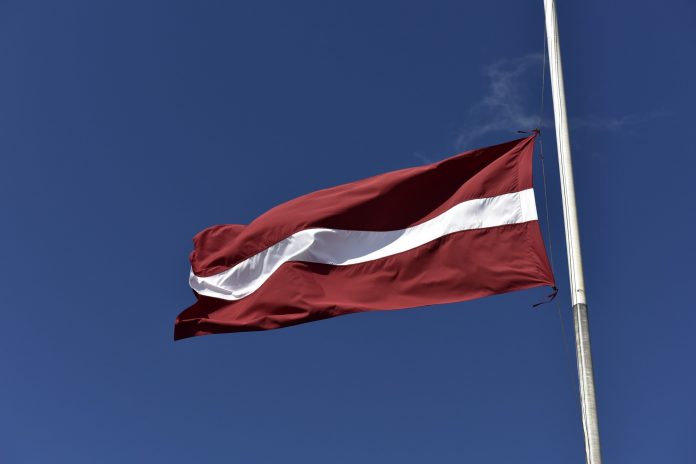Dace Melbarde, Minister for Culture in Latvia gives thought to cultural policies in the country and why the concept of national culture is important.
First of all, I have to explain that I believe in the concept of national culture and nation-state in the 21st Century. Among the theorists and researchers there are at least 3 positions with regards to the concepts of nation-state and national identity in the globalisation era:
– Nationalists see the contemporary world as a world of nations where each nation maintains its unique national identity and unity. A demonstrative testimony and recognition of it is an existence and operation of the United Nations Organisation. Nationalists of today consider that growing globalisation endangers the future and uniqueness of the contemporary nation-state, and all their efforts are directed towards safeguarding the nation as a singular cultural community united by shared homeland, history, national culture, economy, rights and responsibilities;
– Cosmopolites stand for the information society characterised by open information structures. The essence of their position lies in the belief of the universal humanism and diversity of cultures. Trust and understanding among people of different backgrounds, universal values and rights are the most essential; the global identity is the most fundamental among all others;
– Post-modernists criticise both of the above. They declare that identities of the humanity, cultures and individuals are diverse and multiple. The proper playground for such phenomenon of identities is an environment created by the new information and communication technologies. They believe that the future society becomes more and more individualistic.
Latvia’s future as a nation-state
The birth of the Latvian state is based on the cultural nationalism. The Encyclopedia of Nationalism published by the Academia Press in 2001 describes the Latvian nationalism as a particular form of nationalism stating that the Latvian oral culture – numerous Latvian folk songs, fairytales and legends – – has been and still is the most significant resource information of national self-confidence.
In this era we have seen the rapid demise of cultural diversity throughout the world. Certain cultural and globalisation researchers believe that the cultural homogenisation brought on by cultural globalisation is equal to the ecological crisis we are experiencing and these processes are, in fact, closely linked.
The most obvious evidence is the loss of languages (the situation with dialects and the vernacular is even more critical). From the approximately 6000 thousand languages that people on earth have spoken, at present only half remain, and of those, some are represented now by only 1 or 2 speakers. Even though culture and language are not identical, it is clear to everyone that the disappearance of any language is inextricably associated with the loss of a whole culture, if not an entire way of life.
The dedicated efforts of the international community over the last 5 years attest to the fact that this is not mere conjecture, because, under the auspices of UNESCO and the Council of Europe, numerous significant international legal instruments have been created to safeguard cultural diversity.
Even in Latvia, studies of the consumption of culture prove that Latvians prefer to be passive culture consumers rather than to actively participate in the creative process. As soon as culture as a creative life style is replaced by culture as a “market place”, favourable conditions for the dissemination of commercial culture and entertainment grow, and the national cultural environment weakens.
The preservation and cultivation of a national culture
A national culture is necessary for the development of a cohesive society. The central mission of integration policy should be rallying the community around a common basis of shared values instead of the heated promotion of various ideas throughout the populace, according to the postulates of multiculturalism. In other words, if Latvia truly wants to arrive at an integrated society, then the goal of both state cultural policy as well as integration policy, is to search for what is shared, rather than to merely highlight the differences.
Studies show that over the past 15 years, the ethnic make-up of Latvian society has become notably more complex. There has been a dynamic growth in the development and internal consolidation of various ethnic groups. The larger ethnic groups have started to pay attention to strengthening their own ethnicity.
At the same time there has been a growth in the ethnic identity of the minority communities – there has been no corresponding growth in the national identity as a value. The values that unite Latvian society have not been specifically articulated enough, but their absence is a risk for the small nation to remain in the grip of the tension arising from contradictions inherent in ethnic differences.
The idea of a unified national culture is necessary for the individual. The merging of cultures and the creation of mixed identities are processes that many people are not ready for, thereby eliciting fear and insecurity. A national culture, together with education must be able to deliver a stable base – a set of cultural values – within this amalgam of changing identities, which, as a social and spiritual signpost can assist the individual with their own journey of self-discovery. The preservation of the cultural space of small nations (cultures) is a global imperative. Latvia is the only country in the world that can take the responsibility for the preservation of the uniqueness of its own national culture; and in doing so; it contributes to the preservation of global diversity. We cannot ignore the fact that even though we refer to the certain nationalities living in Latvia as minorities, on a global scale, these ethnic groups are also a part of larger cultures. The small number of practitioners of Latvian culture places it closer to the category of cultures and languages under threat.
From a globalisation point of view, the identities of nations are subject to the increasing competition which has a significant influence not only on the development of a nation brand, but also on the development of the country’s socio-economic prospects.
My belief is that a competitive identity for Latvia in the 21st Century is to be found in the uniqueness of its national culture, its excellence and in the creative potential and talents of its people.
A flagship project of the 21st Century Latvia is the new Latvian National Library. The newly constructed library building called “The Castle of Light” will be opened to readers on 29 August, 2014. One of the ambitions of the Latvian National Library is to become a centre of excellence in digitisation of culture both for Latvia and the wider region. Over the last decade there has already been enriching experiences in setting up the National Digital Library of Latvia “Letonica”. The main long-term goal of the project is to digitise and make Latvian cultural heritage as widely accessible as possible, and to support this with IT infrastructure, common standards, and methodology.
Uniqueness of the Latvian culture stems from the intangible cultural heritage. The main challenge is our ability to build links between ancient wisdom, skills, and the contemporary cultural expressions to create sustainable usage and application of this heritage.
As for the creativity and talents, I strongly believe in the position that creative professionals and cultural specialists have to be recognised as a major asset of the cultural life and policy in Latvia. For quite a long time we have set cultural infrastructure as a main financial priority of the national cultural policy. There is no sustainable, diverse and vital national culture without its main creator – man. There is much to be done to define and protect the legal status of the creative professionals; we have to invest more in strengthening motivation of the cultural specialists, and we have to regain good prestige of the creative professions and professionals needed for the culture market. At the same time there is yet one more precondition for the sustainability of the national culture which cannot be underestimated – an informed and motivated consumer of cultural and creative products. In the context of increasing globalisation and global competition, our authorities should devote more efforts to strengthening the unique identities of national and local cultures and public awareness. At the same time, it is important that people are open to diversity, and they are curious about the history and culture of their neighbouring countries. The shared sense of belonging to the country and its diverse cultural environment, people’s self-respect, self-confidence and taste can ensure a wide public demand of Latvian culture and creative industry products in the future. Thus, in the upcoming years, cultural and arts education should be one of the top priorities in the national cultural policy. In this respect we have to improve quality of our professional arts education as well as to collaborate with the Ministry of Education to integrate cultural knowledge and skills into the formal education process. Media specialised in culture, both written and electronic, is also a subject of the cultural policy to develop a smart consumer of cultural and creative products which is ready to take shared responsibility on the future of Latvian culture.
Dace Melbarde
Minister for Culture
Ministry of Culture – Republic of Latvia
Tel: +371 6733 0200








